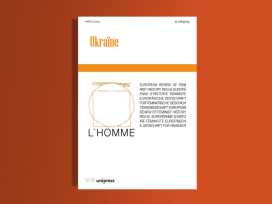On 28 July, French president Nicolas Sarkozy announced a series of measures to deal with Roma communities in France. These include plans to shut down around 300 illegal camps, the expulsion from France of all Roma from Romania and Bulgaria who have committed public offences, an exchange of policemen between France and Romania, and targeted checks by the fiscal authorities on Roma who possess expensive SUVs.
Two days later, in a declaration on the Roma, Sarkozy said he wanted to revoke the French citizenship of immigrants with French passports who endanger the life of police officers. The government then started to fly Roma back to Romania. Most were ineptly “bribed” not to return with euro 300, a measure that makes little sense given that most of these Roma, just as high-ranking French officials, will promise whatever it takes to take advantage of whatever is on offer. The collection of biometric data in an effort to ensure Roma do not return to France is both expensive and irrelevant.
Blatant racism
Targeting Roma alone – or, indeed, migrants from Romania, Bulgaria or elsewhere – cannot be seen as anything but racist. If the same policies were applied equally to all French citizens involved in cases of bribery, nepotism, corruption, financial mischief, embezzlement – fancy words for robbery and other crimes – a good part of the French political class would have to be expelled or lose their citizenship.
If we believe French media coverage of the Bettencourt scandal, in which it is alleged that the French President received campaign funds above the legal limit, even the president himself might be sent back to Hungary or Greece. Former junior ministers in his cabinet, one of whom flew to Martinique on a charter jet for just over euro 116 000, and another who bought over euro 12 000 worth of cigars, all paid for with public money, might also be forced to emigrate if the French government were to treat all criminals equally.
If the fiscal authorities were to check the way French politicians and wealthy citizens, bankers for example, have amassed their fortunes and their SUVs, even more expulsions might be in order. It is well known that many French companies have paid enormous bribes in their dealings in Africa and other developing countries, often to the extreme detriment of the locals. These few examples suggest that the French state and fiscal authorities could achieve a great deal more by focusing on French citizens rather than migrants.
Political pressure and old authoritarian colonialism
French officials have frequently been accused of arrogance and paternalism, as well as neo-colonialism and racism. French Minister for European Affairs Pierre Lellouche has been extremely vocal on the issue of the Roma for the past year, especially the Romanian Roma. He has a talent for putting his foot in his mouth and is highly abrasive. He is best known for calling the British Tory policy on Europe “pathetic” and “autistic”. He annoyed both the US and Turkish governments with his inability to control his aggressive verbosity. In his treatment of weaker EU member states or countries in the EU accession process such as Macedonia and Turkey, some of his speeches seem to indicate he might be suffering from the French arrogance and paternalism that is well documented in its dealings with Tunisia – where the minister was born during French rule – and other former French colonies. When it comes to the Roma, his speeches either border on racism or are reminiscent of bullying French colonial attitudes.
During the last week of July this year, France, through Lellouche, put pressure (a euphemism) on the Romanian government to name a secretary of state responsible for Roma issues. This is indeed a necessary measure, but only if done properly. Romanian premier Emil Boc, possibly forgetting that he is the prime minister of an EU country and not the governor of a French colony, rushed to name Valentin Mocanu to this position. Mocanu is completely unknown to the Romanian political class, as well as to Romanian civil society and Roma communities. He has never published anything on the Roma and has no known experience in dealing with Roma issues. He has no legitimacy in this role and almost certainly no interest or motivation.
Policy failure
Romanian Roma have travelled to France since the beginning of the 1990s, most of them as temporary visitors. French measures attempting to deal with this migration have rarely been adequate; on the contrary, they have mostly been woefully inadequate. Successive governments have never employed an expert on Roma issues and have proved indifferent to the creation of such expertise at the EU level. Roma have been the topic only of empty and often bombastic speeches that aim either to prove that France is promoting equality and human rights, or to justify the promotion of blatantly racist policies whenever the extreme right wing needs a diversion or a scapegoat.
Major problems do exist within the ghettos, or illegal settlements, in France as in Italy; we must expect to see this repeated sooner or later in other EU countries. These are the result of over 20 years of failed policies at both national and European levels. The increase in the number of Roma leaving Romania and other east European countries for makeshift ghettos around European cities is a direct consequence of a disastrous lack of coherent long-term strategies and funds targeting the social inclusion of Roma. If proper measures are not taken these numbers will simply increase.
Lellouche, the European Commission and most governments have neither the experience nor the skills to understand the complex mechanisms that trigger Roma moves from their ghettos at home to those in other countries. Expertise on these issues is sorely lacking and explains why efforts to formulate policy are either limited or catastrophic. Both national governments and the European Commission are dramatically understaffed with the right people in this sector and unprepared to solve the problems. Some funds are provided but there is no vision or strategy that might ensure the expenditure produces results. Problems of begging and prostitution, two of Lellouche’s favourite words in referring to the Roma, could be more easily and more cheaply solved by targeting those French citizens, including politicians, who finance them. But that might prove highly unpopular, especially with Sarkozy’s rightwing electorate.
Hypocrisy and short-term memory
A game of “ping pong” between European Union bodies and member states on the responsibility for the social inclusion of Roma has led to the current situation. It is not historically unique: Italians, Irish, southern French, Poles, Spanish, Asian and Jewish immigrants who left their countries for the US at the turn of the past century were considered inferior and prone to criminality and prostitution by US elites. Some were forced to return. The horrendous crimes in Europe half a century later under the Nazis led to the strong rebuttal of racist theories.
The father of the theory of biological racism and the idea of an Aryan master race, Joseph Arthur Comte de Gobineau (1816-1882), was a well-respected member of the French aristocracy in his day. Lellouche and other French politicians may wish to reflect that following his line of thought and expressing similar ideas is a criminal offence in many countries, and that they may one day be the ones to risk expulsion.
As is to be expected, a number of extremist Italian ministers have also started to make noises demanding the return of “undesirables”. Both France and Italy are keen to present Roma issues as a huge security threat. This is France we are talking about here: France, the EU country with the most damaging riots in recent years. Within the past five years alone these have cost over euro 200 million, close to 3000 cars burned, almost 3000 people arrested, 126 policemen and firemen injured, and 127 cities affected, all as a result of the complete failure of policies for social inclusion directed at the poorest French citizens.
And Italy, the home of the Mafia, the criminal network with estimated business of euro 130 billion, of which euro 59 billion comes from drug trafficking and another euro 5.8 billion from arms deals. It sounds like a sick joke, but politicians seem immune to hypocrisy and happy to use racism as a vote winner.






